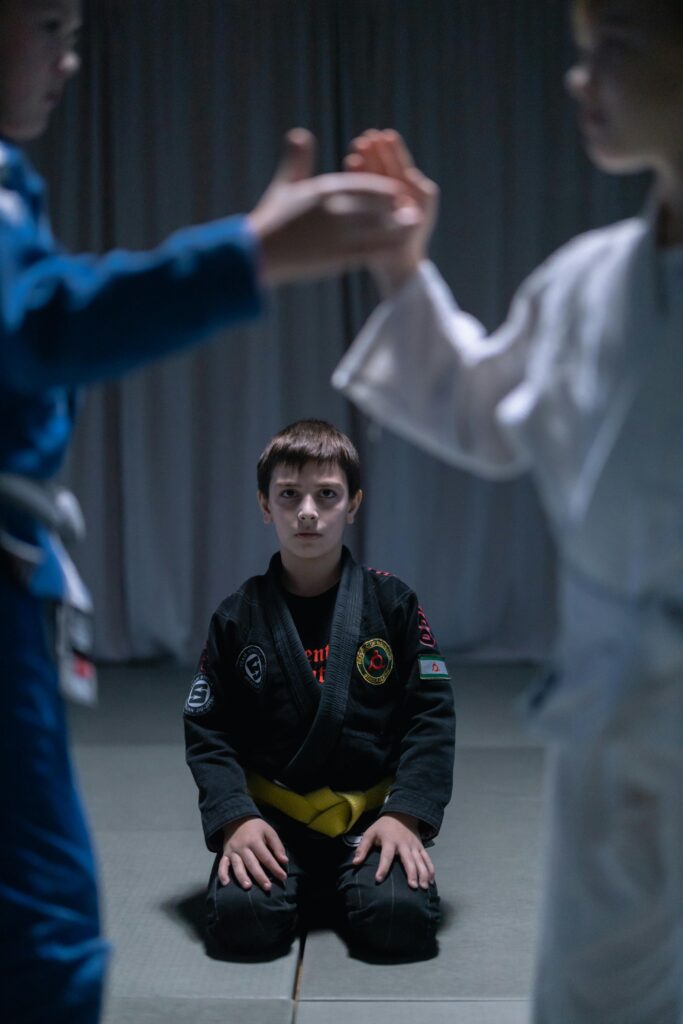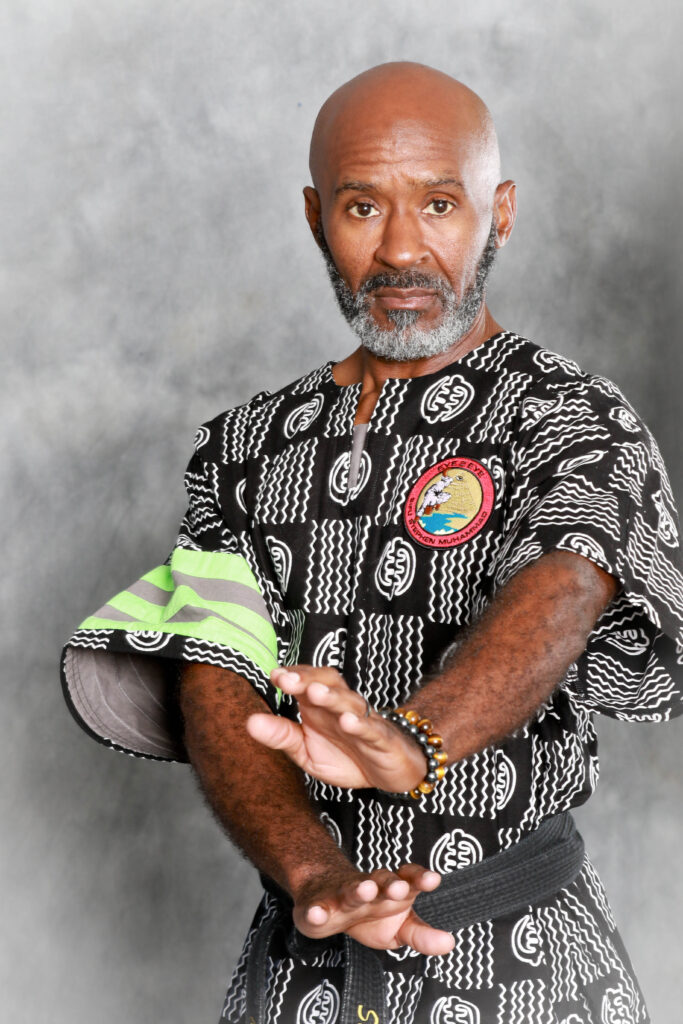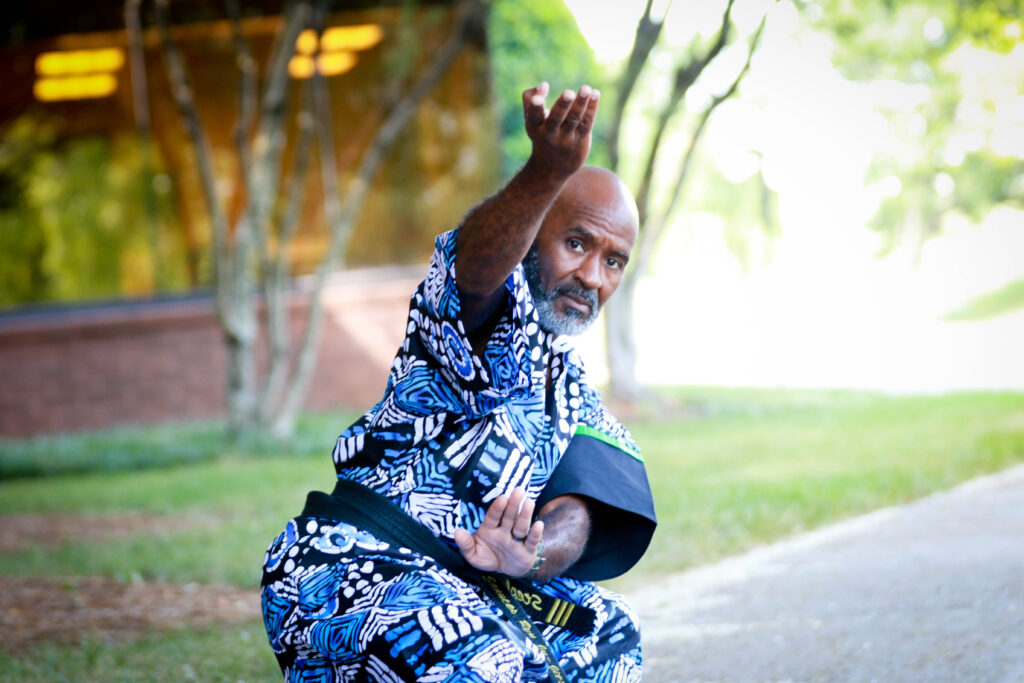When I first began practicing martial arts, I never imagined it would shape me into a better leader.
Sure, I expected to learn some self-defense moves and improve my fitness, but what I didn’t realize was how much martial arts could teach me about leadership—both in and out of the dojo.
Whether it’s staying calm under pressure, learning to respect others, or sharpening your decision-making skills, martial arts offers incredible lessons that apply to all areas of life, especially leadership.
At Eye2Eye Combat, we see this transformation firsthand every day. Our students aren’t just training to defend themselves—they’re building the confidence, discipline, and empathy that great leaders possess.
Let me show you how leadership through martial arts can shape your path to becoming a strong leader, unlocking potential you never knew you had.
Self-Discipline: The Foundation of Leadership
One of the first things you learn in martial arts is discipline. It’s a skill that you carry both inside and outside the dojo. In martial arts, you practice the same moves repeatedly to perfect them.
You don’t get good overnight. It requires commitment, patience, and the ability to push yourself—even on the days you don’t feel like it. This is the same level of dedication required to be a strong leader.
Leadership isn’t about doing things when they’re easy; it’s about sticking to your goals, even when obstacles come up. In martial arts, the physical training forces you to focus and control your mind.
It’s about more than just following orders from your instructor; you must also take initiative, knowing when to push harder and when to pull back. This kind of self-discipline is the foundation for leadership.
If you can control your actions, you’re already one step ahead in guiding others.
Emotional Resilience: Leading with a Calm Mind
Let’s face it—life throws challenges at us when we least expect it, and leadership is no different. Whether you’re running a team, managing a project, or solving a family issue, staying calm under pressure is critical. Martial arts teaches this in every session.
When you’re sparring, your opponent can throw a punch you didn’t see coming. You have two options: panic or stay calm and respond thoughtfully. Panic leads to mistakes, but keeping your cool helps you control the situation.
This is the kind of emotional resilience that leaders need. In martial arts, you learn to focus on what you can control, like your breathing and your reactions, while blocking out distractions.
In leadership, emotional resilience isn’t just about handling crises; it’s also about managing your own emotions so they don’t overwhelm you. Think of a martial artist who gets hit in a sparring match but keeps going without losing focus.
Leaders need that same ability to face setbacks without letting frustration take over. Whether it’s managing a stressful situation at work or making quick decisions under pressure, martial arts trains you to keep your emotions in check and move forward with a clear head.
Respect and Empathy: Core Values for Ethical Leadership
One of the core principles in martial arts is respect—respect for your instructor, your fellow students, and even your opponent. Bowing before and after a match isn’t just a formality; it’s a reminder to remain humble, even in victory, and to honor those around you.
Respect and empathy are key ingredients in great leadership. When you respect others, it shows you value their input and recognize their strengths. Leaders who respect their team members build trust, which in turn boosts morale and productivity.
Empathy is about understanding where others are coming from, recognizing their challenges, and offering support when needed.
In martial arts, you’re often working with people of different skill levels, and the ability to empathize with someone who is struggling or learning at a slower pace is crucial.
Empathy is just as important as decisiveness when it comes to leadership. You can’t lead a team effectively if you can’t put yourself in their shoes.
Whether you’re teaching a martial arts class or managing a project at work, showing that you understand and respect those around you will always make you a stronger leader.
Strategic Thinking: Mastering Techniques to Lead with Vision
In martial arts, every movement is purposeful, from how you position your feet to how you block an attack.
You’re not just throwing random punches—you’re calculating your next move based on your opponent’s actions. This need for strategic thinking translates directly into leadership.
Effective leaders don’t act on impulse; they plan ahead, anticipate challenges, and strategize solutions. In martial arts, you learn to think several moves ahead. You assess your opponent’s strengths and weaknesses and adjust your technique accordingly.
Leadership works in much the same way. You need to understand your team, anticipate problems, and have a clear vision for the future. Whether it’s guiding a team through a difficult project or leading a company, strategic thinking allows you to make informed, effective decisions.
In martial arts, you constantly evaluate and adjust, which is a key leadership skill. Leaders who can quickly assess a situation and adapt their strategy are the ones who stand out.
You may not always know what challenges are around the corner, but with a strategic mindset, you’ll be ready to face them.
Mentorship and Guidance: Leadership Through Teaching
If you’ve ever taken a martial arts class, you’ve probably seen more experienced students helping beginners.
This isn’t just about perfecting techniques; it’s about passing down knowledge and helping others grow. In martial arts, mentorship is woven into the fabric of the training process.
Leadership is about more than just giving orders; it’s about lifting others up and helping them reach their potential. In martial arts, teaching others not only helps the student but also solidifies your own understanding.
When you mentor someone, you learn to communicate effectively, break down complex ideas, and offer encouragement—skills that are essential for any leader.
Great leaders understand the importance of nurturing talent. They don’t just focus on their own success; they’re invested in the growth of those around them.
In martial arts, as you progress through the ranks, you’re expected to share your knowledge with others, creating a culture of learning and continuous improvement.
This type of mentorship creates a cycle of leadership, where today’s students become tomorrow’s teachers.
Confidence and Humility: Balancing Power as a Leader
Martial arts has a way of teaching you about yourself. One of the most valuable lessons I’ve learned from it is how to balance confidence with humility.
When I first started training, I often found myself struggling to get things right, whether it was mastering a new technique or improving my endurance. It’s easy to get discouraged when you’re just beginning, but the more I trained, the more confident I became.
That confidence didn’t just come from getting physically stronger, though. It came from building mental toughness—learning to trust myself and my abilities even when things didn’t go as planned. This kind of confidence is essential in leadership.
However, martial arts quickly reminds you that confidence needs to be balanced with humility. No matter how skilled you become, there will always be someone faster, stronger, or more experienced. This is humbling, but it’s also a powerful lesson.
As a leader, you need to have the confidence to make decisions and take charge, but you also need the humility to admit when you don’t have all the answers. Great leaders don’t pretend to know everything—they’re open to learning from others, no matter their rank or position.
Martial arts fosters this balance naturally, showing you that true strength lies in knowing when to step up and when to step back.
Confidence without humility can come across as arrogance, and arrogance can push people away. On the flip side, humility without confidence can make you seem unsure of yourself. The balance is key.
When you have both, people are more likely to trust and respect you, knowing that you’re secure in your decisions but also willing to listen and learn. In martial arts, you’re constantly refining this balance, whether it’s during sparring sessions or teaching a less experienced student.
As a leader, the same principle applies. By balancing confidence with humility, you create an environment where others feel comfortable sharing ideas, giving feedback, and growing alongside you.
Unlock Your Leadership Potential with Eye2Eye Combat
Martial arts isn’t just about self-defense or fitness. It’s a journey that shapes you into a stronger, more focused, and more resilient leader.
The discipline, emotional resilience, respect, and strategic thinking you develop through martial arts are the same qualities that great leaders embody. Every lesson learned brings you closer to becoming a better leader—not just in the dojo, but in all areas of your life.
At Eye2Eye Combat, we believe in empowering individuals to unlock their full potential through martial arts. Our unique programs are designed to help you grow both physically and mentally, while developing the leadership skills that will benefit you in your personal and professional life.
If you’re ready to take the first step toward becoming a confident, resilient leader, join us at Eye2Eye Combat and start your journey today.
Take control of your future—train with us and become the leader you’re meant to be.
FAQs
1. How does martial arts help improve decision-making skills in leadership?
Martial arts sharpens your ability to think quickly and assess situations under pressure. When sparring or practicing techniques, you must analyze your opponent’s movements and make strategic decisions in real-time.
This mental agility directly applies to leadership, where quick, thoughtful decision-making is essential for navigating challenges, managing teams, and adapting strategies on the fly.
2. Why is emotional intelligence important for leadership in martial arts?
Emotional intelligence, which involves understanding and managing your own emotions while empathizing with others, is crucial in both martial arts and leadership. In martial arts, staying calm under pressure ensures better focus and control.
As a leader, emotional intelligence helps you build stronger relationships, communicate effectively, and lead with empathy, making it easier to handle conflicts and support team members’ emotional needs.
3. How does martial arts training enhance problem-solving abilities?
Martial arts is about more than physical techniques; it requires constant problem-solving. Practitioners face challenges in mastering new skills, adjusting to opponents, and finding ways to overcome physical or mental obstacles.
This process enhances critical thinking and adaptability, two key problem-solving traits that leaders need to assess issues, weigh options, and develop effective solutions in real-world situations.
4. Can martial arts improve leadership skills for people of all ages?
Yes, martial arts is beneficial for developing leadership skills in people of all ages, from children to adults. Children learn discipline, respect, and teamwork, while adults gain mental resilience, strategic thinking, and the ability to guide others.
Martial arts fosters leadership through a combination of physical, emotional, and mental growth, making it accessible and valuable for anyone seeking to enhance their leadership abilities.





